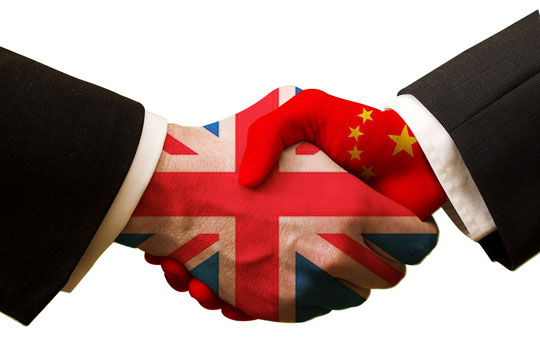President Xi's visit to the UK: start of a Golden Era
- By Kerry Brown
 0 Comment(s)
0 Comment(s) Print
Print E-mail CRI, October 20, 2015
E-mail CRI, October 20, 2015
|
|
|
Chinese President Xi Jinping, accompanied by his wife Peng Liyuan, arrived in London on Monday evening for a state visit to Britain at the invitation of Queen Elizabeth II. |
The UK and China are in the world's top five in terms of economic size - the former at fifth position, and the latter sitting at number two. Despite this commonality, and a long history of engagement, they are partners who could do much more with each other.
Part of this relatively low base for their relations now is due to historic reasons. Up until 1997, the issue of Hong Kong, which was then a colony under British rule, was the focus of most of the discussions between the two countries. With its reversion to Chinese sovereignty under the One Country, Two Systems framework that year bilateral relations were reset in the rubric of 'engagement'. Even so, for the following decade the main growth area was in the increasing numbers of Chinese students coming to study in the UK - rising from 3,000 in 2000 to almost 50,000 by the end of the decade. Today, that figure stands at almost 90,000.
In most other areas, the story has been of incremental, but hardly dramatic, growth. UK investment into China has remained good, but still consists of less than 1 per cent of the whole stock of foreign direct investment into the People's Republic. Chinese investment in the UK started to appear in reasonable amounts around 2005, about the time of the last state visit when President Hu Jintao came to London. Even so, the initial excitement about this and how quickly it was likely to grow soon died down. Chinese bought stakes in Barclays Bank PLC, and then in some utility companies like Thames Water. The China Investment Corporation purchased a share of Heathrow Airport. And even brands like the breakfast cereal Weetabix and car manufacturer M G Rover were taken over by Chinese partners. But as of 2014, less than a tenth of one percent of investment in the UK is from China. It is still overwhelmingly from Europe and the US that investors come.
The UK should, and could, do much better with its relationship with China. It has many economic and cultural attributes that Chinese like - a stable financial system, highly open to outsiders, strong rule of law and predictability, and, in London, a major capital centre where, in the past, many Chinese companies listed on the stock exchange. There is now a significant cohort of Chinese who have been educated at universities across the UK, and who are conversant with Britain socially and in terms of its culture. The UK and China now have the strongest base to build a better relationship and a more impressive one.







Go to Forum >>0 Comment(s)